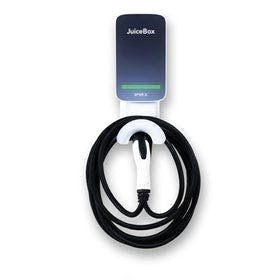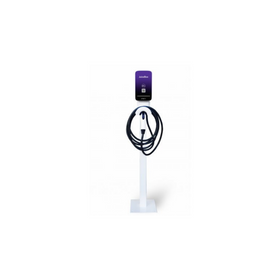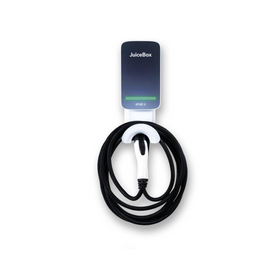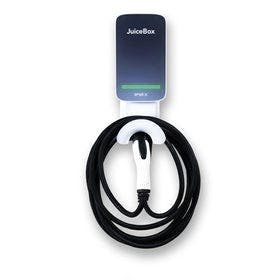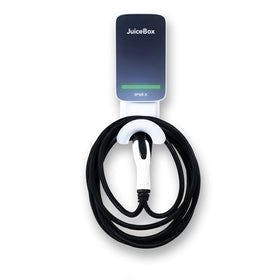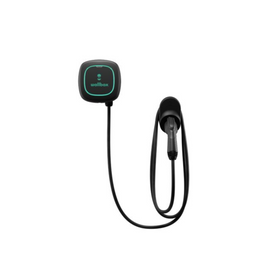
How to Get Your Home Ready for the Tesla 3
Last Updated: Feb 23, 2025Tesla expects to deliver as many as 400,000 Model 3 cars this year (2019), as the highly anticipated rollout offers consumers an opportunity to buy an electric vehicle at somewhat affordable prices.
Led by entrepreneur Elon Musk, Tesla has struggled with failures to meet production deadlines. That seems to be changing recently, as sales hit more than 11,000 in May, and the company has promised to fulfill its pledge to begin delivering vast numbers of Model 3s.
And in the emerging electric vehicle market, Tesla is growing exponentially as the push towards electrification increases, and charging networks become as common as gas stations. While that’s not the case now, that future is not that far off.
With that many consumers buying an electric vehicle—and others wondering if and when it’s time to invest in one—Rise decided to offer a guide to what the Model 3 is all about and what changes you need to make to your home and garage, should you buy one.
Table of Contents
- Why Are the Tesla Model 3's Popular?
- How Much Does a Tesla Model 3 Cost?
- What Is The Least Expensive Tesla Car?
- Are There Incentives to Buy a Tesla Electric Car?
- What Is the Range of the Model 3?
- How Much Does It Cost to Charge an Electric Car?
- Are Electric Cards Cheaper Than Gas Powered Cars?
- Does Solar at Home Make Owning a Tesla Less?
- Are Model 3s Good?
- Do You Need a Special Charger for Electric Cars?
- What about a hardwired Wall Connector?
- How can I make sure I install the right equipment?
- How much does the Wall Connector cost, and is there more than one model?
- What about a Level 3 charger?
- Can I charge my Tesla at any charger?
- How do I find out where Superchargers are located?

Why Are the Tesla Model 3's Popular?
The Model 3’s initial price started at $35,000, making it the company’s first offering that competes on price with other fossil fuel-powered sedans and electric vehicles from competing manufacturers.
How Much Does a Tesla Model 3 Cost?
Tesla's affordability has generated a great deal of excitement because initial Tesla's cost more than $60,000, making Tesla more of a high-priced status symbol. While Tesla increased the "Standard Range" base price to $35,400, with a destination fee bringing the cost to $36,600, it is still much more affordable than previous models, making this pioneering all-electric car more accessible to more people.
What Is The Least Expensive Tesla Car?
In April of 2019, Tesla announced that the Standard Range Plus Model 3 had become the least expensive option moving forward. It’s priced at $41,100 and available for ordering online. The car has several features over the Standard Range, including a 240-mile range, navigation, and heated front seats. The more recent price increase puts the Model 3 more in line with the prices of the BMW 3-series and the Mercedes-Benz C-class electric vehicles.
For even more performance, Tesla’s “Long Range Battery” Model 3 offers a 325-mile range for $51,100. The “Performance” comes in at $61,100 and has additional features and an upgraded interior.
Are There Incentives to Buy a Tesla Electric Car?
In the United States, the federal government's GREEN Act has allocated 200,000 electric vehicle rebates valued at $7,000 per vehicle. Similarly, in Canada, Federal Point-of-Sale Rebates offer up to $8,0000 to car buyers purchasing a Tesla's under an MSRP of $60,000 but can vary by province.
What Is the Range of the Model 3?
Range anxiety is a big deal for people considering electric cars. Model 3s have a 240-mile range on the base, with a “long-range” version offering a 325-mile range.

How Much Does It Cost to Charge an Electric Car?
Compare the Market’s data suggests an electric car costs $13 to charge. Other sources indicate it’s a lot cheaper, especially if EV owners charge overnight, as little as $7 or $8. The U.S. Department of Energy data shows Teslas cost around $500 annually to charge.
Are Electric Cards Cheaper Than Gas Powered Cars?
A Forbes review of the Model 3 puts the cost savings on gas at more than $4,300 over six years. The more gas costs, the more EV drivers save, even if electricity rates creep up. ChargePoint reports Tesla owners pay $1 for Level 2 charging to travel 50 miles, compared to $4.76 of gas needed to go the same distance. New American cars in 2018 averaged around 26 miles per gallon or 10 cents to 12 cents per mile. Teslas average 2.9 cents per mile at average electric costs nationwide—so that’s at least a 70 percent savings.
Does Solar at Home Make Owning a Tesla Less?
Indeed, it does. Home solar electric power systems produce electricity at an average cost of only 7-8 cents per kilowatt-hour (kWh), much less than the 13 cents per kWh average national residential electricity.

Are Model 3s Good?
Model 3s generally have positive reviews. Car and Driver gave the Model 3 high marks for a great entertainment system, good front, rear storage, excellent acceleration, and a "spacious and airy feel inside." The car is unique." We're not exaggerating when we say that the Tesla Model 3 has an interior unlike any other vehicle on the market today. It's shockingly simple inside, with nearly everything controlled by the monolithic touchscreen in the center of the dashboard."
The review dings the Model 3 for overreliance on that touchscreen, uncomfortable rear seating, and small door bins. The warranty is the longest in the EV segment, though it does not cover corrosion.
Consumer Reports has a different take after its survey revealed early adopters who bought Model 3s had reliability challenges.
Do You Need a Special Charger for Electric Cars?
Every Tesla comes with a free Mobile Connector, but that charges frustratingly slow, so much, so it carries the moniker “trickle.” Using a 120-volt plug standard in American homes, the Mobile Connector sets at just three miles per hour.
The Mobile Connector, however, can be upgraded to a larger plug size that provides faster charging. A Tesla owner can charge more rapidly by installing a 240-volt two-phase plug—commonly used for electric stoves and other large appliances.
The more amperage on the circuit, the more quickly electricity is transmitted to the Model 3. Tesla recommends a 40 to 60 amp 240-volt setup for a Mobile Connector to charge at a 30 miles per hour rate.
The potential advantage of having a Mobile Wall Connector is that if a homeowner moves the required hardware, installation at their next residence will be substantially less costly.
The 240-volt plugs are not widely available in places where Tesla owners might charge (like garages). So, you will need to have an electrician install the NEMA plug and upgrade it to 240-volts. The cost of the electrician can vary widely—from several hundred dollars to a few thousand dollars—so be sure and get several quotes from qualified electricians.
What about a hardwired Wall Connector?
The Wall Connector allows even faster charging but less mobility. A 240-volt 60-amp Wall Connector transits 48 miles of charge into a Model 3 in an hour. It sits in your garage and cannot be moved.

Earlier this year, Tesla owners screamed foul when the company substantially raised their Supercharger rates to a point where, in some states, driving an EV on Supercharger power was more costly than gasoline.
But they are effective: they charge at 170 miles in 30 minutes, the fastest charger on the market.
Can I charge my Tesla at any charger?
Teslas don't automatically connect to standard Level 2 chargers. They require a company-approved J1772 connector that fits onto the car's charging equipment. The adaptor comes with every Tesla.
So if you're traveling, don't forget the connector! Please leave it in the truck, or you will be confined to Tesla's Supercharger network.
How do I find out where Superchargers are located?
This is another area where Tesla excels: their website offers information on locations for superchargers. The home screen in the car shows you every place you can charge your car along a road trip and answers almost any other question you might have. If you've ever test-driven a Tesla, you'll know that the excitement might be worth it!
Frank Jossi
Based in St. Paul, Frank Jossi is a journalist, editor and content strategist. He covers clean energy in Minnesota for Midwest Energy News and writes frequently for Finance & Commerce. His work has appeared in more than 70 local, national and international publications.



